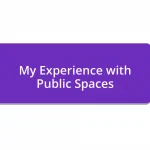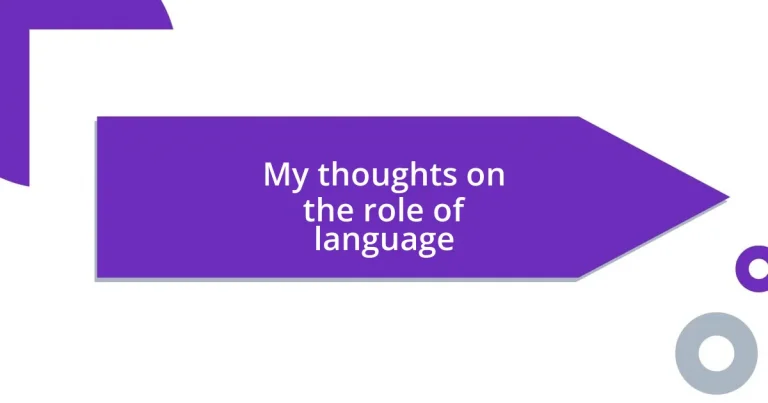Key takeaways:
- Language is essential for communication, understanding, and building relationships, significantly affecting social interactions and perceptions.
- Different languages shape thoughts uniquely, influencing emotional expression and cognitive abilities, enhancing clarity in complex ideas.
- Language is intertwined with social identity, fostering a sense of belonging and pride while also posing barriers for non-speakers.
- Effective language use in conflict resolution promotes empathy and collaboration, highlighting the importance of word choice in sensitive discussions.
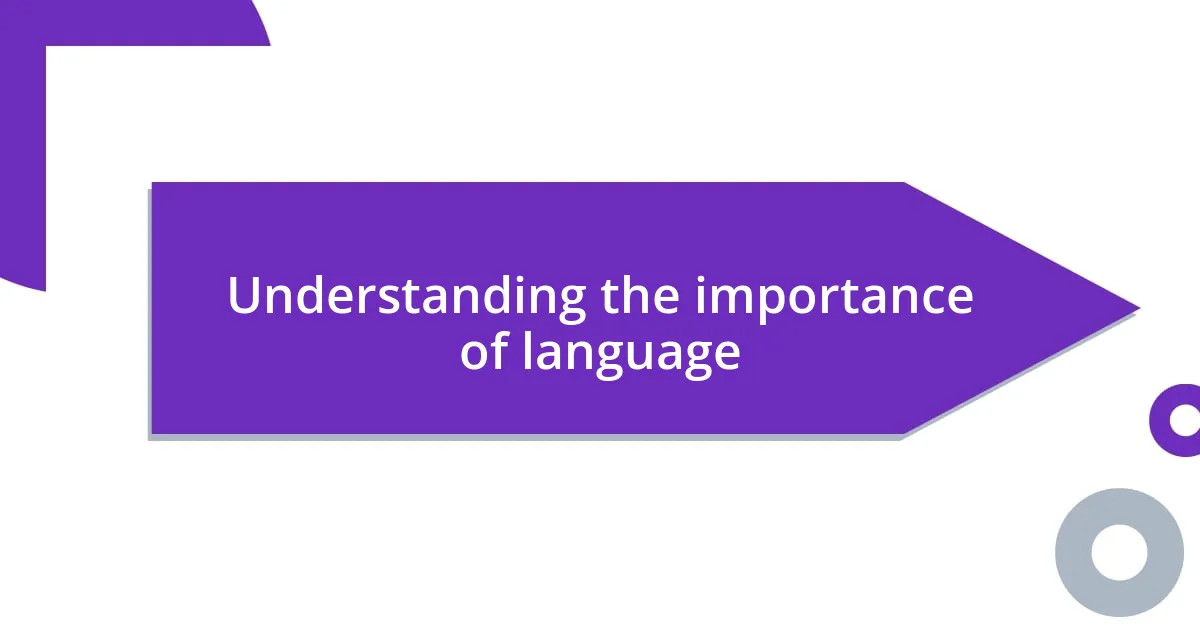
Understanding the importance of language
Language is more than just a means of communication; it’s the foundation of our connections with others. I recall a moment when I miscommunicated a simple request while traveling in a foreign country. The locals’ puzzled expressions reminded me just how vital language can be in building understanding, trust, and relationships. Have you ever experienced that feeling of isolation when words fail?
Think about how language shapes our perceptions. I often find myself reflecting on how certain phrases capture emotions that sometimes feel impossible to express. When I learned a new language, I discovered nuances and cultural insights that transformed the way I saw the world. Isn’t it fascinating how a single word can carry deep meanings and evoke intense feelings?
Moreover, language influences our identities. I’ve seen firsthand how speaking different languages can open doors to new communities and opportunities. It feels empowering to engage with others in their native tongue. How often do we underestimate the power of a few kind words and the bridges they can build?
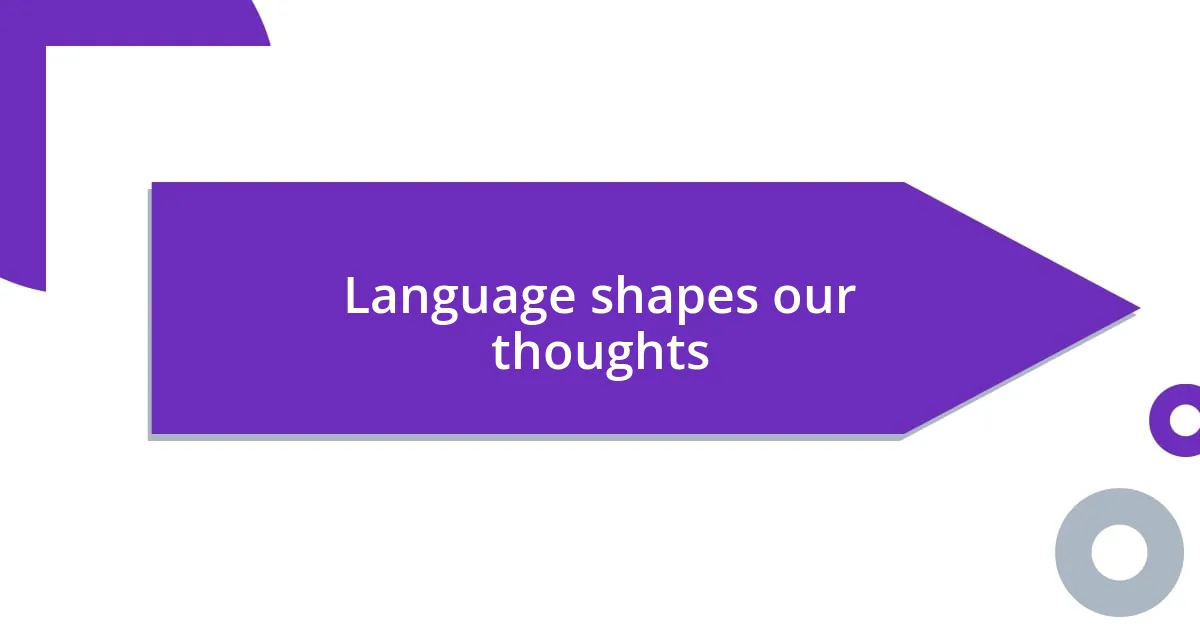
Language shapes our thoughts
Language shapes our thoughts in profound ways. I remember struggling to express my feelings in a language I wasn’t fluent in, which often led to misunderstandings. Those moments illuminated for me how tightly woven our emotions are with the words we use, making it clear that our ability to articulate ideas directly affects how we perceive and process our experiences.
Whenever I learn a new word, it feels like opening a door to a whole new realm of thought. I’ve come to appreciate how different languages can frame concepts that we might not even have words for in our mother tongue. For example, in Japanese, the term “mono no aware” captures a deep appreciation for the beauty of transient moments. How can such unique expressions shift the way we think and feel about our lives?
I’ve also seen how language can limit or expand our cognitive abilities. In conversations, I find myself choosing words carefully, realizing the subtle power they hold. When discussing complex ideas, I notice that certain languages offer more precise terms that can articulate thoughts more vividly. Have you ever felt that a specific word changed the way you viewed a situation? It’s a remarkable experience that underscores how language is not just a tool but a shaper of thought itself.
| Language | Thought Impact |
|---|---|
| English | Broad vocabulary, fosters complex thought |
| Chinese | Contextual importance, encourages collective thought |
| German | Compound words enhance specific thinking |
| Japanese | Emphasizes transient beauty, promotes emotional depth |
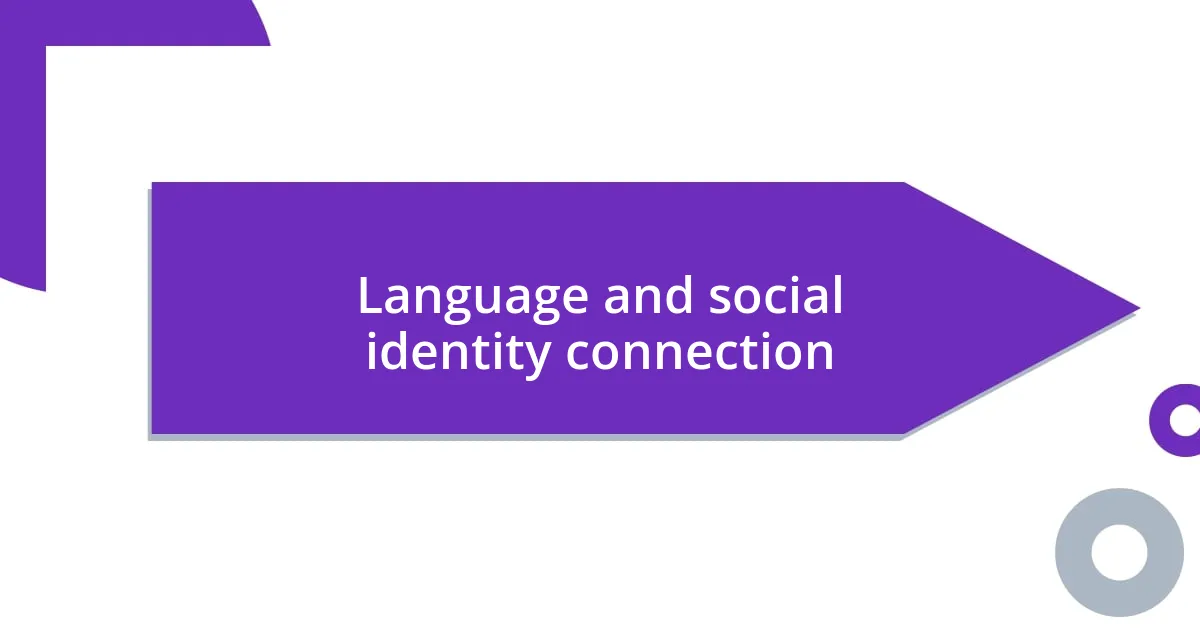
Language and social identity connection
Language is deeply intertwined with social identity. I remember attending a multicultural event where people freely shared stories in their native languages. The room transformed into a vibrant tapestry of voices, each accent and dialect representing unique backgrounds and experiences. It’s a reminder of how our languages can evoke pride in our heritage and create a sense of belonging within a community.
- Language can serve as a badge of identity, signaling group membership.
- Dialects and accents can reveal social status or regional origin.
- Multilingualism often fosters connection between diverse groups.
- Exclusive use of a language can create barriers, alienating non-speakers.
- Language shifts in different settings can reflect adaptability and social alignment.
In my experience, I’ve noticed that switching between languages can feel like switching hats; it changes how I present myself to the world. For example, when I converse in my mother tongue, there’s an innate comfort that fosters authenticity. Conversely, using a second language can sometimes feel like donning a persona, reflecting the nuances of my social surroundings. It’s fascinating how these shifts can affect my interactions, many times leading to unexpected connections or enlightening conversations.
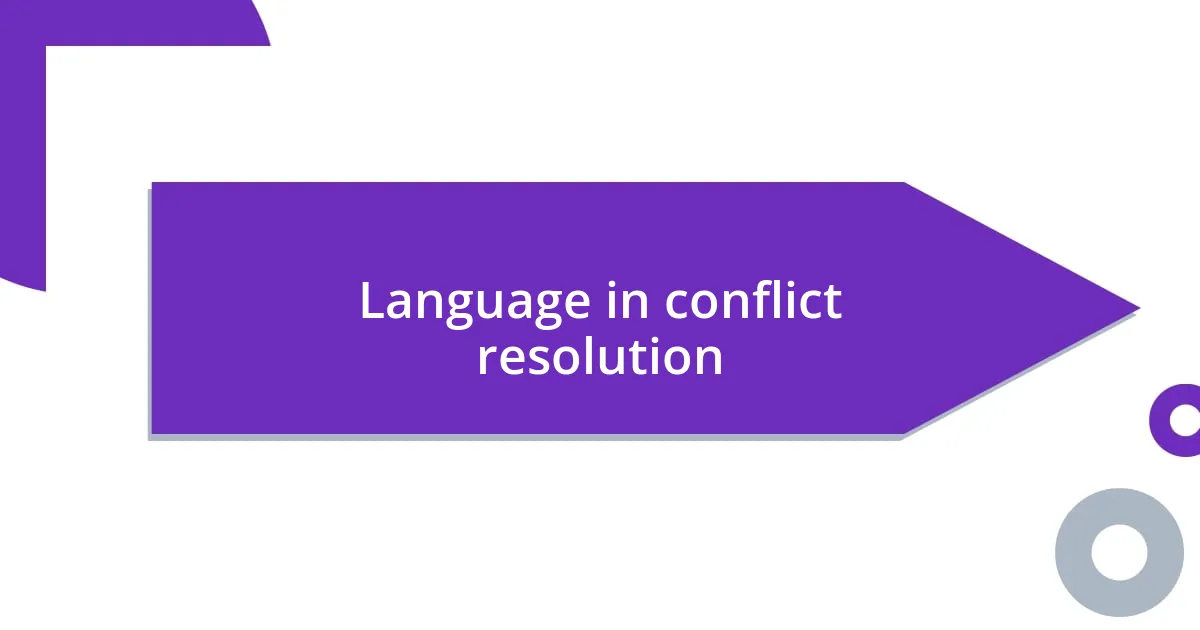
Language in conflict resolution
Language plays a vital role in conflict resolution by shaping dialogue and facilitating understanding among conflicting parties. I remember a time when I actively participated in a mediation session where we used a common language to bridge cultural differences. In those moments, I noticed how clear and empathetic communication was essential in diffusing tension and fostering cooperation.
In discussions where emotions run high, the choice of words can either escalate a situation or calm it down. I’ve observed that when parties use “I” statements, such as “I feel” instead of “You did,” it fosters a non-confrontational atmosphere. This subtle shift invites empathy and opens up pathways for productive conversation. Have you ever noticed how a simple rephrasing can change the whole tone of a discussion? It’s impressive how language can transform conflict into collaboration.
Moreover, understanding the nuances of language in conflict resolution is crucial. For instance, during a workshop on intercultural communication, we explored how certain phrases might carry different connotations in various cultures. One participant shared how a literal translation of a phrase he used in his culture led to misinterpretation in ours. That experience highlighted how deeply intertwined language is with cultural context, reminding me that empathy and adaptability are essential for successful resolution.
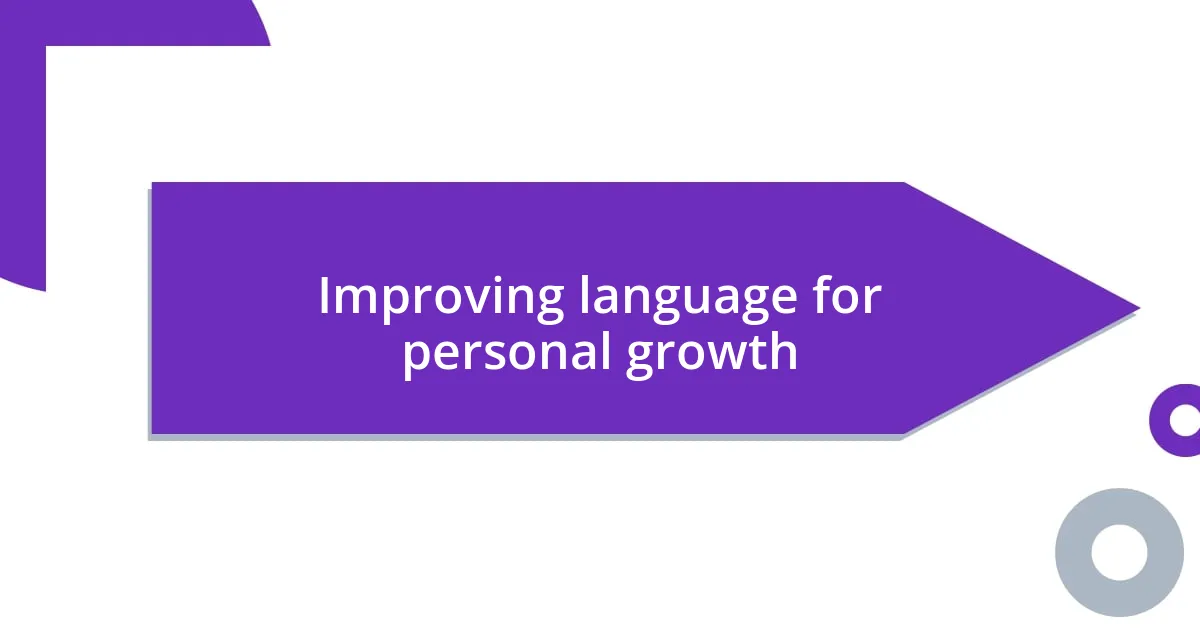
Improving language for personal growth
Improving language can significantly contribute to personal growth. I recall a time when I decided to learn a new language purely out of curiosity. Engaging with a different linguistic structure not only expanded my vocabulary but also changed my view of the world. I started noticing how language shapes thought patterns. Have you ever felt that learning a new word unlocked an entirely new perspective? It’s an exhilarating experience.
In my experience, as I improved my language skills, I gained confidence in expressing my ideas. Participating in a public speaking course helped me articulate my thoughts more clearly. There was a moment during a presentation when I found the perfect words to convey my message, and the audience responded with interest. I realized then that a nuanced grasp of language allows us to connect on a deeper level, fostering meaningful relationships and opportunities.
Moreover, improving language skills can enhance emotional intelligence. I remember once discussing a sensitive topic where I chose my words carefully, practicing mindfulness in what I expressed. That awareness led to a more constructive conversation, demonstrating how precisely chosen words can cultivate understanding. Have you ever thought about how much power lies in the words we use daily? It’s incredible to think that by refining our language, we can pave the way for growth in ourselves and our relationships with others.






